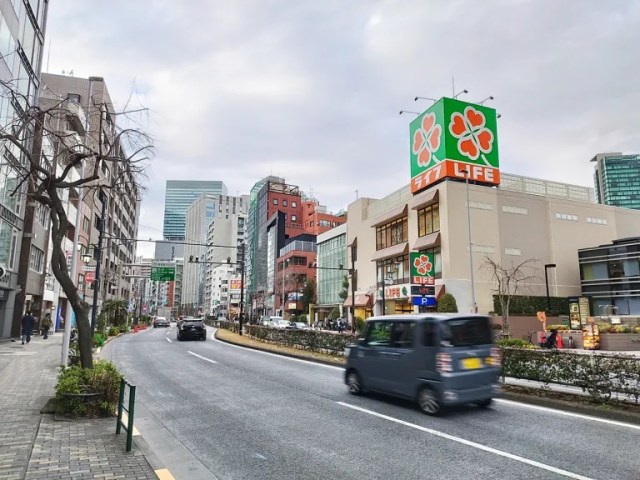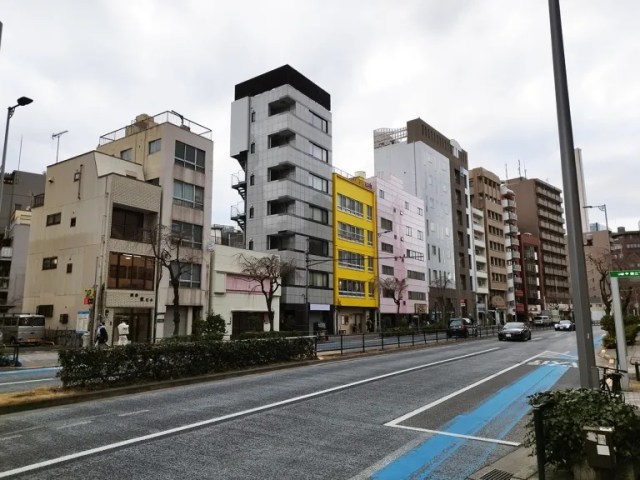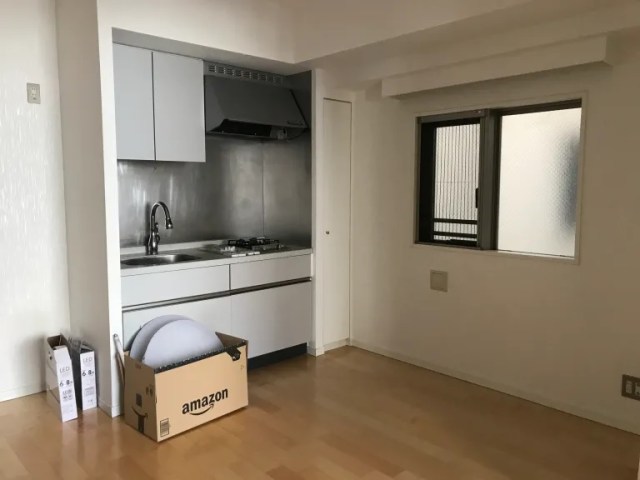
With tons of college students and office workers looking to move at the same time, is dodging the “new lifestyle” season a smart move?
In Japan, spring isn’t just cherry blossom season and hay fever season, it’s also moving season.
The vast majority of Japanese colleges start their academic year in April, and mid-year transfer admissions are rare. The situation is similar at Japanese companies; most start their business year in April, and do most, or even all, of their hiring in one batch, with new employees all starting in the spring. Mid-career office transfers also usually happen around the same time too.
This results in a lot of people looking for a new apartment to move into in March, so that they’ll be settled in and close to their new school or workplace. It’s such a widespread social phenomenon that early spring is often called the shin seikatsu, or “new lifestyle,” season in Japan. With so many people looking for apartments in spring, though, there’s a bit of folk wisdom that says that if you can hold out and wait to move until after the early-spring rush, you can find places with less expensive rent, since demand for apartments is lower.
This is something that our Japanese-language reporter Seiji Nakazawa has been hearing ever since his student days, but also something that he’s never been able to confirm. Moving to a new apartment is ordinarily something you do only once every couple of years, and often to a new neighborhood where the average rent might be different from the area you’re leaving, so it’s hard to track month-by-month prices for truly comparable apartments.
Though he’s not looking to change jobs or enroll in school, Seiji is thinking about moving soon, and he’s already started apartment hunting. But that old advice about being able to save money by dodging the peak moving season is rattling around in his head, and luckily he got the chance to ask a pro if it’s true or not. In Japan, pretty much all apartment hunting is done through a real estate agency, and while Seiji was riding in his realtor’s car to check out a couple promising places, the realtor brought up the topic of the new lifestyle season, saying “It really is nice having so many options to choose from during the moving season, isn’t it? If you start apartment hunting too early or too late, all the good places will be taken already.”
“But I’ve heard that if you avoid moving season, rents go down,” countered Seiji. “Is that true?”, to which his relator answered:
“No, rents don’t change in the off-season. All that seems to happen is your number of options go down.”
In hindsight, this makes a lot of sense. The logic behind the theory that it’s cheaper to look for an apartment in the off-season comes from the concept that the demand for apartments is highest in the spring, so prices will be higher, and that conversely if you go looking for an apartment in the off-season, when demand is lower, landlords will have brought rents down to attract new tenants.
Really, though, that’s an oversimplification of how economics works. Demand is only half of what determines price. Just as important is supply. Most people moving into new apartments in spring means few people moving out of their apartments at other times of the year, i.e. a lower supply of vacant apartments. So whether you’re moving in the spring, when both the demand for and supply of apartments is high, or in the off-season, when apartment demand but also supply is lower, those factors are still in similar equilibrium, meaning that prices don’t change much between the moving peak and off-seasons.
It’s the relative difference between supply and demand that determines price, so if that relative difference stays pretty consistent throughout the year, it’s really in your best interest to plan your move in the spring, when the total supply of vacant apartments is at its highest. The more options you have, the better your chance of finding a place that has the location, features, and other factors you want at a price you’re comfortable with. Wait until the off-season, and you might get stuck with only a small pool of available apartments and end up having to choose the one you dislike the least, as opposed to one you actually like, and without any lower-rent savings to make up for it.
Following up on Seiji’s question, his realtor asked his coworkers at the agency, which operates in the Shibuya and Ebisu neighborhoods of downtown Tokyo, and they all felt the same way: apartment hunting in the off-season won’t get you cheaper rent, and you’ll just have fewer choices.
That said, there is a way to save money by moving outside of peak time, but not with cheaper rent. The realtor told Seiji that you can sometimes get cheaper prices from moving companies who’re transporting your stuff to you new place if you’re moving in the off-season. Again, this goes back to supply and demand. With fewer people moving in the off-season, demand for moving services is lower. It’s not like moving companies sell off their trucks and fire their employees in late spring, though. The supply of moving services remains high throughout the year, so when demand is lower, some of them will offer discounts. Some movers will even lower their prices if you’re willing to have them move your stuff on weekdays, particularly in the morning or afternoon, since most people need to wait until the weekend, or at least after work.
As far as hunting for the apartment itself, though, Seiji’s real estate agent tells him there’s no time like the present.
Photos ©SoraNews24
● Want to hear about SoraNews24’s latest articles as soon as they’re published? Follow us on Facebook and Twitter!



 What to do if you want to lower your apartment rent or avoid paying key money in Japan
What to do if you want to lower your apartment rent or avoid paying key money in Japan Japanese Netizens ask: Would you move into an “accident site” apartment for cheaper rent?
Japanese Netizens ask: Would you move into an “accident site” apartment for cheaper rent? How much money do you need to live in your own apartment in Japan?【Survey】
How much money do you need to live in your own apartment in Japan?【Survey】 Tokyo realtor will give you hundreds of dollars of anime decorations for your new apartment
Tokyo realtor will give you hundreds of dollars of anime decorations for your new apartment House hunting? Here are some tips that might prevent headaches and frustrations
House hunting? Here are some tips that might prevent headaches and frustrations Japanese drugstore sells onigiri at pre-stupid era prices, but how do they compare to 7-Eleven?
Japanese drugstore sells onigiri at pre-stupid era prices, but how do they compare to 7-Eleven? Japan Extreme Budget Travel! A trip from Tokyo to Izumo for just 30,000 yen [Part 1]
Japan Extreme Budget Travel! A trip from Tokyo to Izumo for just 30,000 yen [Part 1] Starbucks Japan releases first-ever Hinamatsuri Girls’ Day Frappuccino
Starbucks Japan releases first-ever Hinamatsuri Girls’ Day Frappuccino Randy’s Donuts opens first-ever branch in Japan, brings L.A.’s donuts to Tokyo【Photos】
Randy’s Donuts opens first-ever branch in Japan, brings L.A.’s donuts to Tokyo【Photos】 Adorable Totoro acorn key holders come with a special guest hidden inside[Photos]
Adorable Totoro acorn key holders come with a special guest hidden inside[Photos] Ultra-realistic cat latte art blows us away, puts us off our coffee
Ultra-realistic cat latte art blows us away, puts us off our coffee Shinjuku izakaya’s all-you-can-eat-and-drink plan is one of Tokyo’s best secret cheap eats
Shinjuku izakaya’s all-you-can-eat-and-drink plan is one of Tokyo’s best secret cheap eats Beautiful blue apple jam is taking the Japanese internet’s breath away!
Beautiful blue apple jam is taking the Japanese internet’s breath away! Cherry blossom mochi lattes arrive at Japan’s Pronto cafe chain to start sakura sweets season
Cherry blossom mochi lattes arrive at Japan’s Pronto cafe chain to start sakura sweets season An overnight trip on the Sunrise Izumo, Japan’s awesome Tokyo-Shimane sleeper train【Photos】
An overnight trip on the Sunrise Izumo, Japan’s awesome Tokyo-Shimane sleeper train【Photos】 The 10 most annoying things foreign tourists do on Japanese trains, according to locals
The 10 most annoying things foreign tourists do on Japanese trains, according to locals Starbucks Japan releases new sakura goods and drinkware for cherry blossom season 2026
Starbucks Japan releases new sakura goods and drinkware for cherry blossom season 2026 Is Sapporio’s Snow Festival awesome enough to be worth visiting even if you hate the snow? [Pics]
Is Sapporio’s Snow Festival awesome enough to be worth visiting even if you hate the snow? [Pics] Japan has trams that say “sorry” while they ride around town…but why?
Japan has trams that say “sorry” while they ride around town…but why? Tokyo Skytree turns pink for the cherry blossom season
Tokyo Skytree turns pink for the cherry blossom season Highest Starbucks in Japan set to open this spring in the Tokyo sky
Highest Starbucks in Japan set to open this spring in the Tokyo sky Japan’s new “Cunte” contact lenses aren’t pronounced like you’re probably thinking they are
Japan’s new “Cunte” contact lenses aren’t pronounced like you’re probably thinking they are Shibuya Station’s Hachiko Gate and Yamanote Line stairway locations change next month
Shibuya Station’s Hachiko Gate and Yamanote Line stairway locations change next month Yakuzen ramen restaurant in Tokyo is very different to a yakuza ramen restaurant
Yakuzen ramen restaurant in Tokyo is very different to a yakuza ramen restaurant Starbucks Japan adds new sakura Frappuccino and cherry blossom drinks to the menu
Starbucks Japan adds new sakura Frappuccino and cherry blossom drinks to the menu Japan’s newest Shinkansen has no seats…or passengers [Video]
Japan’s newest Shinkansen has no seats…or passengers [Video] Foreigners accounting for over 80 percent of off-course skiers needing rescue in Japan’s Hokkaido
Foreigners accounting for over 80 percent of off-course skiers needing rescue in Japan’s Hokkaido Super-salty pizza sends six kids to the hospital in Japan, linguistics blamed
Super-salty pizza sends six kids to the hospital in Japan, linguistics blamed Starbucks Japan unveils new sakura Frappuccino for cherry blossom season 2026
Starbucks Japan unveils new sakura Frappuccino for cherry blossom season 2026 Foreign tourists in Japan will get free Shinkansen tickets to promote regional tourism
Foreign tourists in Japan will get free Shinkansen tickets to promote regional tourism Take a trip to Japan’s Dododo Land, the most irritating place on Earth
Take a trip to Japan’s Dododo Land, the most irritating place on Earth Naruto and Converse team up for new line of shinobi sneakers[Photos]
Naruto and Converse team up for new line of shinobi sneakers[Photos] Is China’s don’t-go-to-Japan warning affecting the lines at a popular Tokyo gyukatsu restaurant?
Is China’s don’t-go-to-Japan warning affecting the lines at a popular Tokyo gyukatsu restaurant? Survey asks foreign tourists what bothered them in Japan, more than half gave same answer
Survey asks foreign tourists what bothered them in Japan, more than half gave same answer Japan’s human washing machines will go on sale to general public, demos to be held in Tokyo
Japan’s human washing machines will go on sale to general public, demos to be held in Tokyo Starbucks Japan releases new drinkware and goods for Valentine’s Day
Starbucks Japan releases new drinkware and goods for Valentine’s Day We deeply regret going into this tunnel on our walk in the mountains of Japan
We deeply regret going into this tunnel on our walk in the mountains of Japan Studio Ghibli releases Kodama forest spirits from Princess Mononoke to light up your home
Studio Ghibli releases Kodama forest spirits from Princess Mononoke to light up your home Major Japanese hotel chain says reservations via overseas booking sites may not be valid
Major Japanese hotel chain says reservations via overseas booking sites may not be valid Put sesame oil in your coffee? Japanese maker says it’s the best way to start your day【Taste test】
Put sesame oil in your coffee? Japanese maker says it’s the best way to start your day【Taste test】 No more using real katana for tourism activities, Japan’s National Police Agency says
No more using real katana for tourism activities, Japan’s National Police Agency says Apartments with no bath or shower rising in popularity among young Tokyoites, report says
Apartments with no bath or shower rising in popularity among young Tokyoites, report says 11 cheapest Tokyo neighborhoods to rent an apartment in show living here’s not an impossible dream
11 cheapest Tokyo neighborhoods to rent an apartment in show living here’s not an impossible dream For you, this is good enough! Appliance maker’s brutally honest ads charm Japan
For you, this is good enough! Appliance maker’s brutally honest ads charm Japan How much money do you need for a studio apartment in downtown Tokyo?
How much money do you need for a studio apartment in downtown Tokyo? Burning through cash just to throw things away tops list of headaches when moving house in Japan
Burning through cash just to throw things away tops list of headaches when moving house in Japan If you have an apartment in Japan, your “fire disaster insurance” may also be toilet insurance
If you have an apartment in Japan, your “fire disaster insurance” may also be toilet insurance Here’s one of the first things you should do if you just moved into a new apartment in Japan
Here’s one of the first things you should do if you just moved into a new apartment in Japan